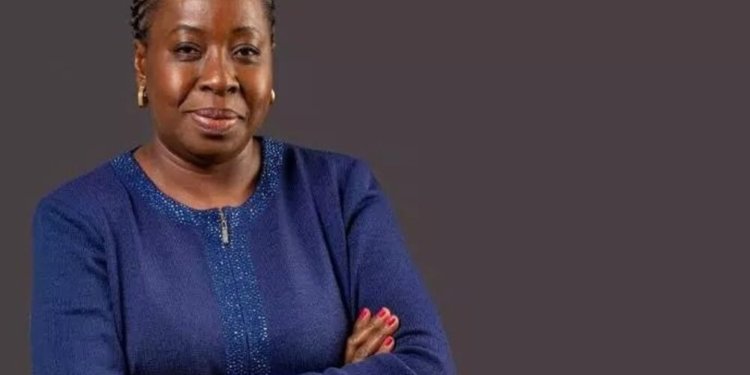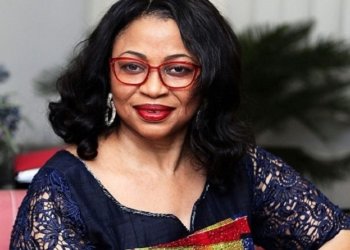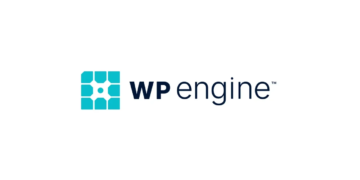What if one person could transform an entire region’s digital future? This question lies at the heart of Funke Opeke’s remarkable journey in African telecommunications.
She is a Nigerian electrical engineer who founded Main Street Technologies and served as Chief Executive Officer of Main One Cable Company. Her vision has reshaped West Africa’s communication landscape.
Under her leadership, MainOne became West Africa’s leading provider of communication services and network solutions. The company’s growth in data infrastructure has been extraordinary.
In 2022, Equinix acquired MainOne for $320 million after Opeke’s 14 years as CEO. This acquisition represents a major milestone for digital infrastructure development across the region.
Her educational background includes degrees from Obafemi Awolowo University and Columbia University. This foundation prepared her for transforming internet connectivity and data centre capabilities.
Key Takeaways
- Funke Opeke revolutionized West Africa’s telecommunications infrastructure through MainOne
- She founded and led MainOne as CEO for 14 years before its acquisition
- MainOne’s $320 million acquisition by Equinix marks a significant industry milestone
- Her work dramatically improved internet connectivity and data centre services
- Opeke’s electrical engineering background fueled her technology leadership
- She received numerous awards for her contributions to African technology growth
- Her legacy continues to influence digital infrastructure development across Africa
Who Is Funke Opeke?
Before transforming West Africa’s digital landscape, Funke Opeke built her expertise through rigorous education and corporate experience. Her journey from Nigeria to America shaped the technical foundation that would later revolutionize connectivity across the region.
Early Life and Education
Born into a large family of nine in Ibadan, Nigeria, Opeke’s childhood was rooted in academic excellence. Her father made history as the first Nigerian director of the Cocoa Research Institute. Her mother dedicated her career to teaching.
This environment fostered early intellectual curiosity. Queen’s School in Ibadan became the catalyst for her interest in electronics and technology. The strong secondary education program there sparked her passion for technical subjects.
She pursued electrical engineering at Obafemi Awolowo University for her bachelor’s degree. This decision marked the beginning of her specialized technical training. The program provided fundamental knowledge that would support her future career.
Opeke then moved to the United States for advanced studies. She earned a master’s degree in electrical engineering from Columbia University. This international education expanded her technical perspective significantly.
Her experience at Columbia presented unique challenges as a Black woman in a predominantly white, male engineering program. She navigated these obstacles with determination and academic excellence. This period strengthened her resilience and technical capabilities.
Career Beginnings in the United States
After graduating from Columbia, Opeke began a twenty-year telecommunications career in the US. She started with positions at technology startups like SendMail. These early roles provided hands-on experience with emerging technologies.
Her career progression led to significant leadership positions. She eventually became Executive Director of Verizon Communications’ Wholesale Division in New York City. This role involved managing major telecommunications infrastructure and services.
Her US experience provided the technical foundation she would later apply in Nigeria. She gained expertise in network architecture, cable systems, and data management. These skills became crucial for her future ventures.
During this period, she began considering how to apply her expertise in her home country. The growing digital divide in West Africa presented both challenges and opportunities. She recognized the potential for transformative internet infrastructure development.
Her corporate experience with a major provider like Verizon gave her insights into scalable business models. She understood the technical requirements for reliable cable systems and data centre operations. This knowledge would prove invaluable for her future company.
Building MainOne: A Telecommunications Revolution
A critical gap in Nigeria’s digital infrastructure became the catalyst for one of Africa’s most transformative technology projects. This visionary effort would reshape connectivity across West Africa.
Identifying the Need for Better Connectivity
In 2005, the telecommunications leader returned to Nigeria as Chief Technical Officer of MTN Nigeria. This role provided firsthand insight into the region’s connectivity challenges.
After leaving MTN in 2006, she worked on NITEL’s privatization efforts. The experience revealed significant corruption issues within the state-owned company.
These experiences highlighted the urgent need for reliable internet service. The poor connectivity was limiting economic growth across West Africa.
The MainOne Cable Project: Challenges and Triumphs
In 2008, she founded Main Street Technologies to address these connectivity issues. The company would later become known as MainOne.
The ambitious project involved building a 7,000-kilometer undersea cable from Portugal to West Africa. It would land in Accra, Dakar, Abidjan, and Lagos.
This $240 million venture faced numerous obstacles. Raising capital proved extremely difficult in the early stages.
Obtaining permits and securing debt financing created additional regulatory hurdles. The project required navigating complex international agreements.
Despite these challenges, the cable system was completed in 2010. It became West Africa’s first privately owned, open-access submarine cable.
Expansion into Data Centers and Network Solutions
MainOne’s success with the cable project led to further expansion. In 2015, the company launched Nigeria’s largest Tier III Data Center.
The infrastructure growth continued with cable extensions from Lagos into Cameroon. This expanded the network’s reach across the region.
The company’s services created numerous job opportunities directly. More importantly, they enabled local tech companies to scale effectively.
Organizations like CcHub and Andela benefited significantly from improved connectivity solutions. Their growth demonstrated the project’s broader economic impact.
MainOne’s division focused on comprehensive network solutions transformed business operations across West Africa. The foundation laid by this telecommunications revolution continues to support digital growth today.
Achievements and Industry Recognition
Decades of groundbreaking work in telecommunications have earned this visionary leader numerous prestigious honors. Her contributions to Africa’s digital transformation continue to receive global recognition.
Awards and Honors for Leadership
The telecommunications pioneer received the 2012 CNBC All Africa Businesswoman of the Year award. This recognized her exceptional leadership in transforming West Africa’s connectivity landscape.
In 2013, she was named among Africa’s Most Powerful Women In Technology. This honor highlighted her growing influence in the continent’s tech sector.
Forbes included her in their 2018 list of The World’s Top 50 Women In Tech. This global recognition placed her among the most influential technology leaders worldwide.
Her highest honor came in 2022 when she received the Officer of the Order of the Niger (OON). This national award recognized her extraordinary contributions to Nigeria’s technological development.
MainOne’s Acquisition by Equinix and Recent Developments
In 2022, global digital infrastructure company Equinix acquired MainOne for $320 million. This acquisition represented a major milestone for African telecommunications.
The strategic decision provided MainOne access to Equinix’s worldwide ecosystem. This ensures long-term sustainability and growth for the network solutions provider.
After 14 years as CEO, the founder stepped down from her leadership role. She transitioned to a strategic advisory position for West Africa through March 2026.
Wole Abu became managing director of Equinix’s West Africa business. This leadership change maintained continuity while bringing fresh perspectives.
MainOne continues operating under its original brand as “MainOne, Solutions by Equinix.” The company’s data centre division, MDXi, now operates under the Equinix name.
Equinix plans to leverage MainOne’s infrastructure to expand across Africa. Recent developments include new data center openings in key Nigerian markets.
Additional investments will establish data centers in Victoria Island, Lekki, and Port Harcourt by 2026. These expansions will further strengthen Africa’s digital infrastructure network.
Conclusion
From electrical engineer to telecommunications pioneer, Funke Opeke transformed West Africa’s digital landscape. Her journey from Columbia University to becoming executive director at Verizon’s wholesale division prepared her for groundbreaking work.
Returning back Nigeria as chief technical officer, she identified critical connectivity gaps. This led to founding street technologies and building the monumental 7,000-kilometer undersea submarine cable.
Her approach focused on adapting existing technologies rather than fundamental innovation. This created an africa leading solutions provider that generated thousands of jobs.
The west african digital infrastructure revolution continues under Equinix. Funke Opeke remains a powerful inspiration for entrepreneurs worldwide.
FAQ
What is Funke Opeke best known for?
She is best known as the founder and former CEO of MainOne, a pioneering company that built West Africa’s first privately-owned, submarine cable system. This project dramatically improved internet connectivity and digital infrastructure across the region.
What was the MainOne Cable Project?
The MainOne Cable Project was a monumental 7,000-kilometer undersea fiber-optic cable system. It connected West Africa to Europe, providing high-speed internet bandwidth and catalyzing the region’s digital economy growth by addressing a critical connectivity gap.
What prompted the creation of MainOne?
After returning to Nigeria, Opeke identified a severe lack of reliable and affordable internet connectivity, which was a major barrier to business and economic growth. This need inspired her to launch the company and undertake the ambitious cable project.
What happened to MainOne?
In a landmark deal for the African tech sector, MainOne was acquired by the global digital infrastructure company Equinix in 2022. This acquisition was a significant validation of the company’s success and value in the market.
What is her educational background?
She holds a Bachelor’s degree in Electrical Engineering from Obafemi Awolowo University in Nigeria and a Master’s degree in Electrical Engineering from Columbia University in New York. She also completed the Executive Education Program at Harvard Business School.
What did MainOne offer beyond the submarine cable?
The company expanded into a full-service network solutions provider. Its offerings grew to include data center services, cloud solutions, and connectivity services for businesses through its wholesale and enterprise divisions.






